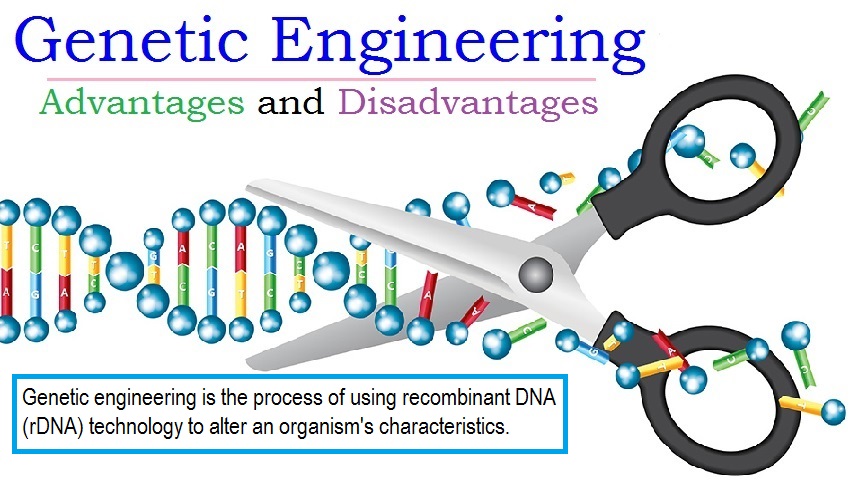Benefits of Genetic Engineering
Genetic engineering has revolutionized various fields, from medicine to agriculture. In this article, we will explore the numerous benefits associated with genetic engineering and how it has the potential to transform our world.
Enhanced Crop Yield and Quality
One of the significant advantages of genetic engineering is its ability to enhance crop yield and quality. Through the modification of plant genetic material, scientists have developed crops that are more resistant to pests, diseases, and environmental stressors. This leads to increased productivity and reduced reliance on chemical pesticides and fertilizers, making agriculture more sustainable and environmentally friendly.
Improved Nutritional Content
Genetic engineering has also allowed for the development of crops with improved nutritional content. By introducing specific genes, scientists have successfully enhanced the levels of essential vitamins, minerals, and other nutrients in various food crops. This can help address nutritional deficiencies and improve the overall health of populations, particularly in developing countries where access to diverse diets may be limited.
Disease Prevention and Treatment
Genetic engineering has opened up new possibilities in disease prevention and treatment. Through the modification of genes, scientists can develop more effective and targeted therapies for various genetic disorders, such as cystic fibrosis and muscular dystrophy. Additionally, genetic engineering has paved the way for the production of pharmaceuticals, including insulin and growth hormones, through the use of genetically modified organisms (GMOs).
Environmental Sustainability
Genetic engineering plays a crucial role in promoting environmental sustainability. By developing genetically modified organisms that can efficiently degrade pollutants or absorb harmful substances from the environment, scientists can aid in cleaning up contaminated sites. Furthermore, genetic engineering offers the potential to develop biofuels, reducing our reliance on fossil fuels and mitigating the impact of climate change.
Increased Disease Resistance in Livestock
Genetic engineering has also shown promise in increasing disease resistance in livestock. By introducing specific genes, scientists can enhance the immune systems of animals, making them less susceptible to diseases. This can lead to improved animal welfare, reduced need for antibiotics, and increased productivity in the agricultural sector.

Genetic engineering holds immense potential in various aspects of our lives, from agriculture to medicine. By harnessing the power of genetic manipulation, we can address global challenges, enhance food security, improve human health, and promote environmental sustainability. It is essential to continue exploring the benefits and ethical implications of genetic engineering to ensure responsible and beneficial applications in the future.
Frequently Asked Questions about the Benefits of Genetic Engineering
1. What is genetic engineering?
Genetic engineering is the manipulation of an organism’s genetic material to introduce desirable traits or remove undesirable ones.
2. What are the potential benefits of genetic engineering?
The potential benefits of genetic engineering include improved crop yields, enhanced disease resistance in plants and animals, the development of new medical treatments, and increased production of valuable proteins and enzymes.
3. Can genetic engineering help in producing disease-resistant crops?
Yes, genetic engineering can be used to introduce genes that provide resistance against pests, diseases, and environmental stressors, reducing the need for chemical pesticides and increasing crop productivity.
4. How does genetic engineering contribute to medical advancements?
Genetic engineering enables the production of pharmaceuticals, such as insulin and vaccines, through genetically modified organisms. It also allows for the development of targeted gene therapies to treat genetic disorders.
5. Can genetic engineering improve the nutritional content of food?
Yes, genetic engineering can be used to enhance the nutritional content of food by introducing genes that increase the production of vitamins, minerals, and other beneficial compounds.
6. Are there any environmental benefits of genetic engineering?
Genetic engineering can help in developing crops that require fewer resources, such as water and fertilizers, reducing the environmental impact of agriculture. It can also contribute to the conservation of endangered species by preserving their genetic diversity.
7. Can genetic engineering be used to develop more efficient biofuels?
Yes, genetic engineering can be employed to modify microorganisms and crops to produce biofuels more efficiently, reducing dependence on fossil fuels and mitigating climate change.
8. Are there any potential risks associated with genetic engineering?
While genetic engineering offers numerous benefits, there are potential risks such as unintended effects on ecosystems, the development of antibiotic-resistant bacteria, and ethical concerns surrounding the modification of human embryos.
9. How is genetic engineering regulated?
Regulations on genetic engineering vary by country. Many nations have established regulatory bodies to ensure the safety and ethical use of genetically modified organisms (GMOs) in agriculture, medicine, and research.
10. What is the future outlook for genetic engineering?
The future of genetic engineering holds great potential for advancements in agriculture, medicine, and environmental sustainability. Ongoing research and technological advancements will continue to shape its applications and address any associated challenges.




